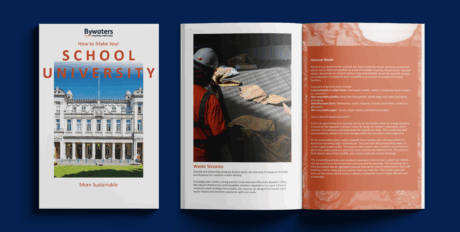Contact us today for your Free Quote
The UK throws away around 10 million tonnes of food every year…
Did you know? That around 10 million tonnes of food is thrown away in the UK every year? That’s enough to feed countries as large as Belgium for the whole year…
With this figure in mind, it’s important to highlight that food waste is a major issue in Britain, and also largely preventable. But it doesn’t have to all be just bad news though.
This Stop Food Waste Day, we’ve created a list of five effective ways to help you be part of the solution. From using up leftovers to nifty tools, our tips will help you take meaningful steps towards reducing food waste for the planet.
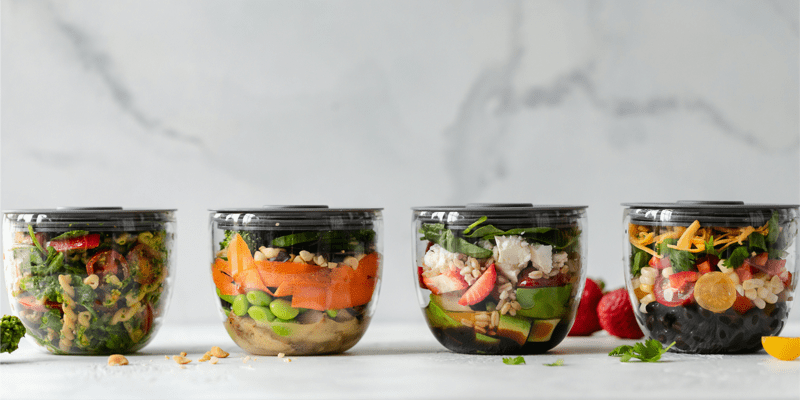
Number 1: Meal prep ideas to be planet-friendly
Ever stare blankly into the fridge at 6 pm, with takeout menus tempting you on the side? If that’s the case, meal planning is a great way to save you the hassle of cooking, as well as some money.
Taking the time to sit down and plan out your meals has its benefits. Not only will you be able to avoid daily trips to your local food store, but you’ll also be able to create a healthy and balanced meal plan that will help you stay on track with any health goals you may have set yourself.
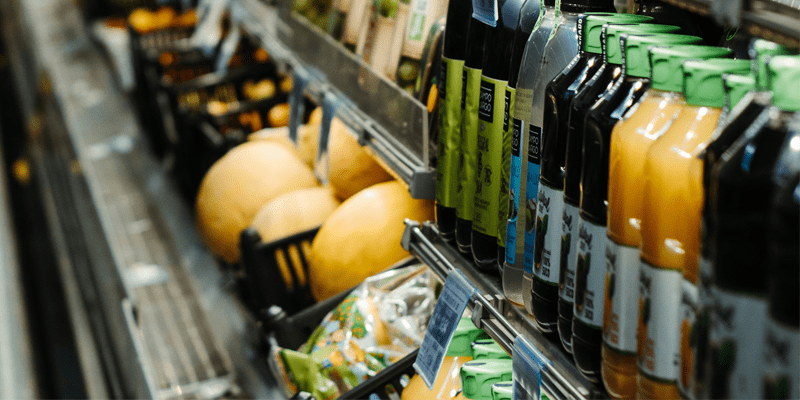
Number 2: Shop smart – buy only what you need
Studies suggest that the overall price of food and non-alcoholic beverages rose around 25% between 2022 and 2024. With this in mind, it’s a no-brainer to avoid excess spending.
Whether it be Tesco, ASDA or your favourite corner shop, smart shopping is essential to avoid food waste. Before you hit the stores, make a list of the things you need to purchase. This way, you can avoid buying things on impulse that you don’t really need. From your previous shopping trips, what have you actually eaten? What have you needed to replace?
The less food you have to repurpose or waste, the better. Additionally, it’s important to check the expiration dates of the products. Give yourself a chance to enjoy the food you’ve purchased.
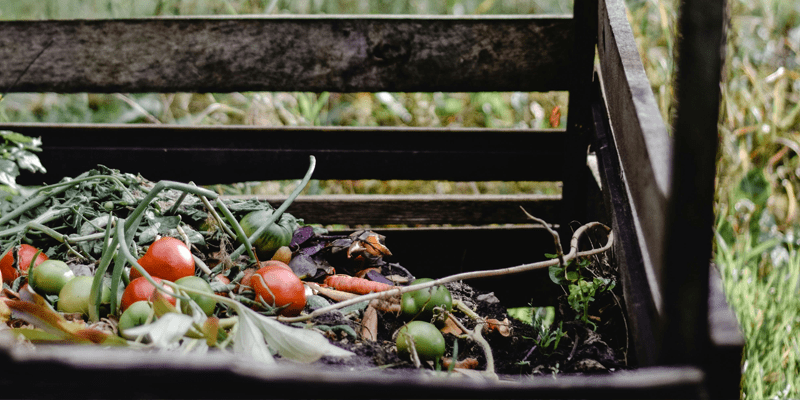
Number 3: Use a composting bin
Composting is an easy and effective way to reduce waste and reuse organic materials. By starting your own compost pile or bin, you can contribute to a healthier environment and even potentially improve your garden. Instead of throwing away food scraps, you can turn them into nutrient-rich compost, which will replenish the soil and help plants grow. Composting has its positives and negatives, so please ensure you do your research into the best practices for composting.
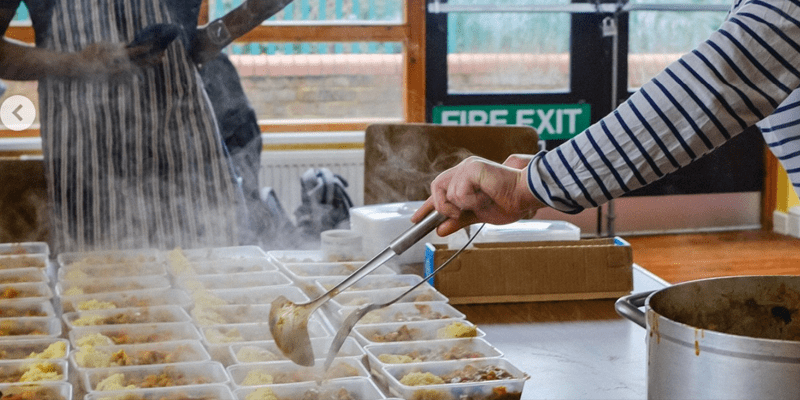
Number 4: Donate and repurpose your food
Research suggests that over 9 million people in the UK suffer from food insecurity, surely we can do something about that. Having said this, there are a few apps and organisations that can help you be part of the solution.
Organisations like Olio offer you the opportunity to repurpose your food for those who need it. Through this platform, you can support those who may need it by offering food on the app for free.
Moreover, if you are in London, you can contact charitable organisations such as FEAST With Us. FEAST With Us collects surplus food to prepare nutritious meals for the people who need it the most, as well as to reduce excess food waste.
Alternatively, you can consider donating to a local food bank. Every contribution, no matter how small, can make a difference. Aside from that, it feels great to know that you’re making a positive impact in the world.
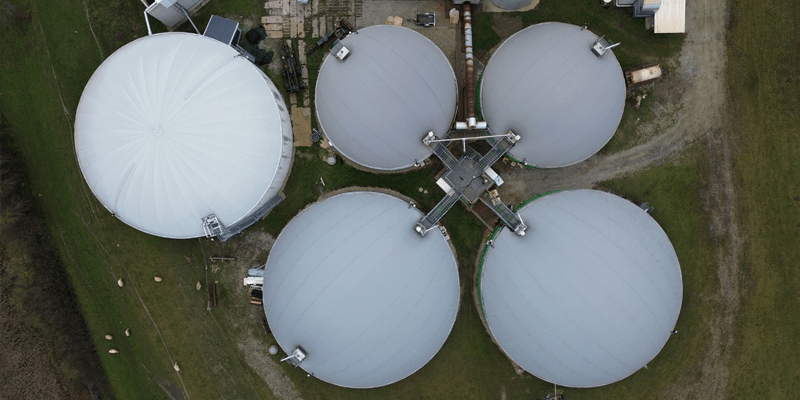
Number 5: Food waste management, anaerobic digestion and more
If you’re a business dealing with food, it is a well-known fact that reducing food waste is crucial for both our wallets and the environment. Moreover, it could also be beneficial for your brand’s image.
If that is the case, it’s essential to research the best recycling methods for the types of food we buy. Additionally, businesses and buildings can greatly benefit from proper waste management through London’s most reliable recycling companies.
Opting for companies like Bywaters that offer anaerobic digestion processes is ideal for managing large pieces of food waste in an environmentally friendly manner. By doing this, we can all contribute to promoting a sustainable lifestyle and keep our planet healthy for generations to come.
You’ve made it this far, we have something for you…
As you can tell from this article, preventing food waste and sustainability is important to us. That is because Bywaters is a leading sustainable recycler that specialises in helping organisations of all sorts to achieve this.
By providing in-depth consultations, our dedicated Sustainability Team is here to help companies and organisations set implementable strategies to help them reach their eco-friendly goals.
If you are a company interested in optimising its food waste management, we are here to help. Click here to contact us today.
More posts:
Valentine’s Day: History, Tradition, and Its Modern Impact
This post traces the evolution of Valentine’s Day from ancient Roman rituals to a global commercial event. It highlights the holiday’s hidden environmental impact and offers a guide to celebrating sustainably through “Circular Romance” and waste reduction.
Read morePlastic Recycling: Why Are Some Types Harder to Process Than Others?
Some plastics recycle easily, while others are difficult or impractical to process at scale. This article explains why material type, packaging design, contamination and recycling infrastructure all play a role, and what businesses can do to improve plastic recycling outcomes in the UK.
Read moreThe Ultimate Guide For a Sustainable School and University
Download The Ultimate Guide For a Sustainable School or University. Get the roadmap to cut costs, reduce your carbon footprint, and boost your ESG profile with 5 core pillars.
Read more


